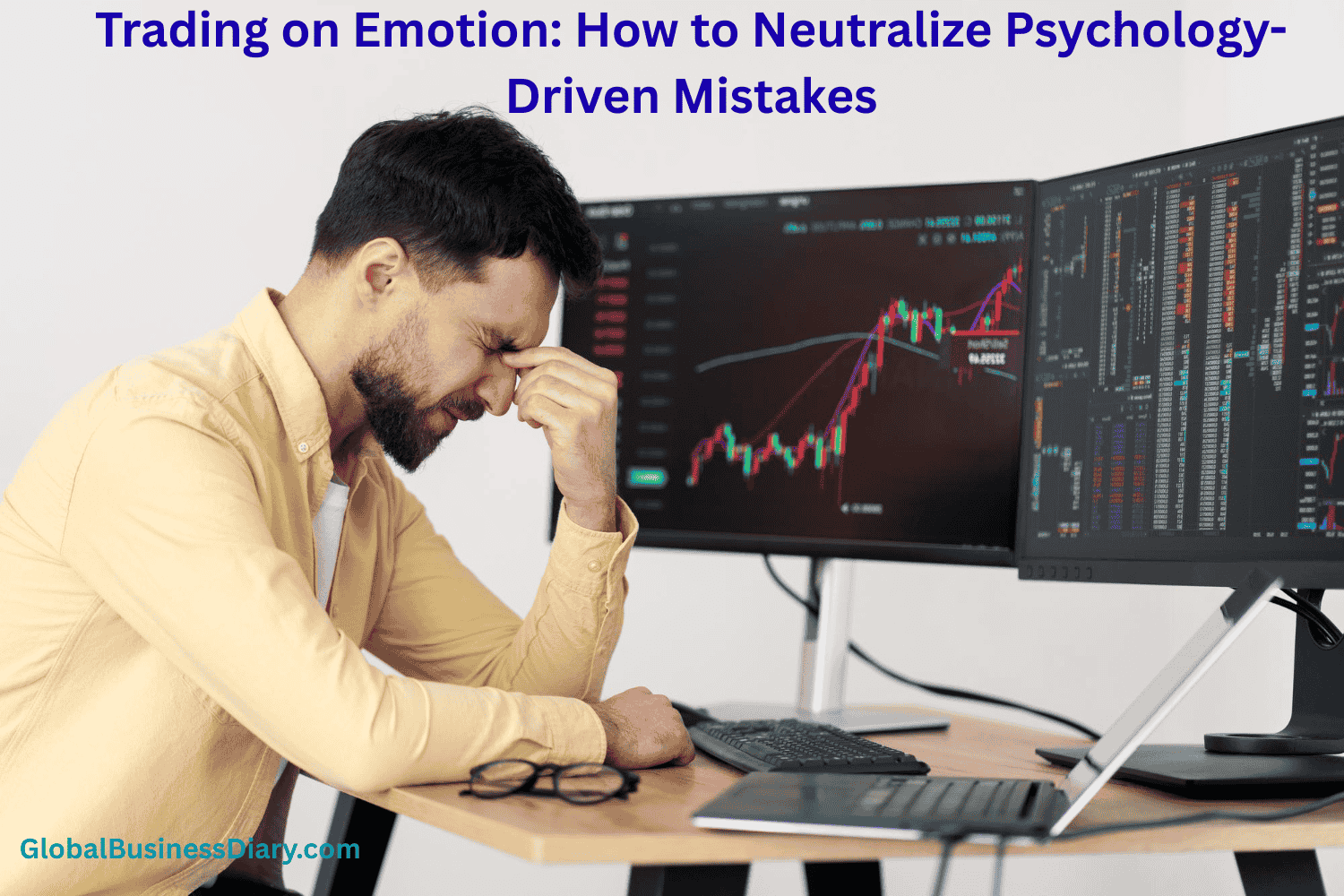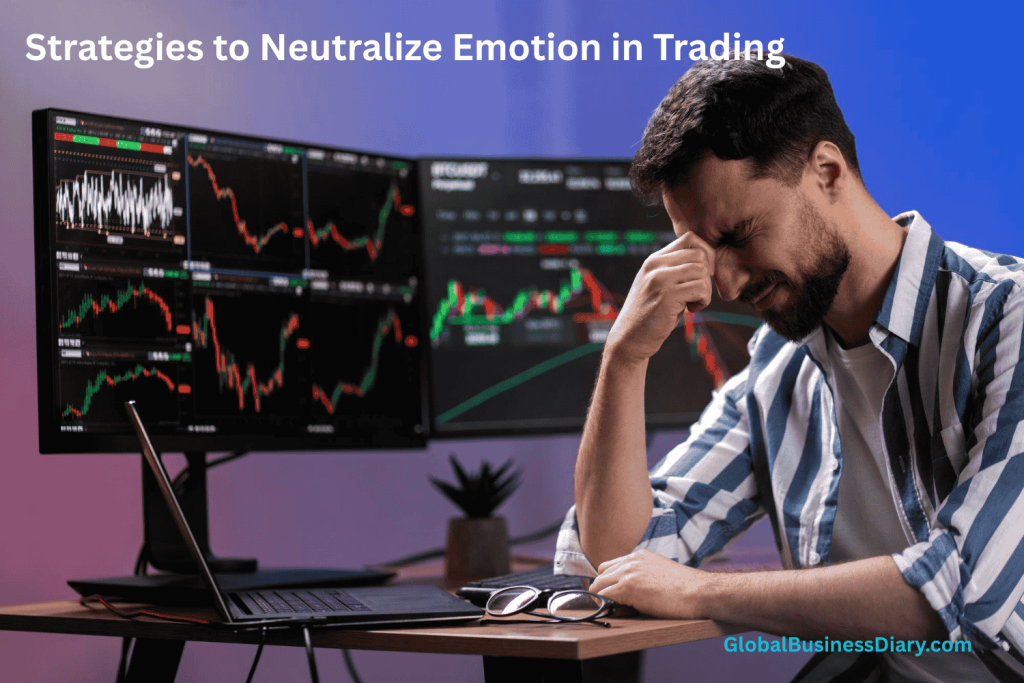Trading on Emotion: How to Neutralize Psychology-Driven Mistakes

In the world of trading, numbers, charts, and data are often regarded as the ultimate decision-makers. Yet, ask any seasoned investor and they will tell you that emotions play just as significant a role, sometimes more. Fear, greed, overconfidence, or even impatience can all cloud judgment, leading to rushed decisions and costly mistakes. While it’s natural for emotions to surface in high-stakes financial environments, the real challenge lies in learning how to neutralize them and prevent psychology from sabotaging long-term strategies.
Understanding how emotions influence trading behavior is not only a matter of self-awareness but also a critical factor in achieving consistency. By recognising the subtle psychological traps and equipping yourself with techniques to counter them, you can approach the markets with greater clarity and control.
Why Emotions Are So Influential in Trading
Trading is more than just the mechanical act of buying and selling assets – it’s a high-pressure activity where outcomes can have direct personal and financial consequences. These stakes naturally trigger psychological responses.
- Fear arises when markets drop sharply, often prompting traders to sell prematurely and lock in losses.
- Greed pushes investors to chase rising prices without due diligence, exposing them to heightened risks.
- Overconfidence can cause traders to ignore warning signals or overestimate their ability to predict trends.
- Impatience may lead to overtrading, where frequent buying and selling erode profits through fees and poor timing.
The brain, wired to avoid loss, tends to magnify negative experiences. In fact, behavioral finance studies reveal that the pain of losing money is psychologically twice as powerful as the joy of gaining it. This “loss aversion” is at the root of many emotion-driven mistakes.
Common Psychological Traps Traders Fall Into
Recognising the patterns of emotional trading is the first step in preventing them. Some of the most common traps include:
- Revenge Trading: After suffering a loss, traders might impulsively enter new positions to “win back” what they lost, often without proper analysis.
- Confirmation Bias: Seeking out information that supports an existing viewpoint while ignoring contradictory data.
- Herd Mentality: Following the crowd in a market frenzy, which can amplify volatility and result in buying at the top or selling at the bottom.
- Paralysis by Analysis: Becoming so overwhelmed by data and potential outcomes that you fail to make timely decisions.
These traps not only damage portfolios but also erode a trader’s confidence, perpetuating a cycle of emotional decision-making.
Strategies to Neutralize Emotion in Trading
The good news is that emotional mistakes are not inevitable. With deliberate strategies, traders can reduce the influence of psychology on their decisions.

1. Develop a Trading Plan
A well-structured trading plan is like a compass – it provides direction when emotions threaten to take over. By outlining entry and exit points, stop-loss levels, and risk tolerance ahead of time, you create rules that anchor your actions. Sticking to this plan prevents impulsive decisions during market swings.
2. Practise Risk Management
One of the strongest antidotes to fear and greed is robust risk management. Allocating only a small portion of capital to any single trade and using stop-loss orders can help traders feel secure even when markets turn volatile. Knowing that your downside is limited reduces the emotional intensity of trading decisions.
3. Keep a Trading Journal
Documenting trades – both wins and losses – along with the emotions felt during each decision can be an eye-opening exercise. Over time, patterns emerge, revealing emotional triggers that may be influencing decisions. By identifying these triggers, traders can take corrective action.
4. Use Technology as an Ally
Automated trading tools or alerts can help remove emotion from the process by executing trades based strictly on pre-defined rules. While human oversight is still essential, delegating some decision-making to algorithms can help reduce impulsive reactions.
5. Step Away When Needed
Sometimes the best way to neutralize emotion is to take a break. Walking away from the screen after a loss, or when feeling overly euphoric about a win, gives you space to regain perspective before making your next move.
The Role of Continuous Learning
Trading psychology is a discipline in itself, and becoming more aware of its influence is an ongoing process. By seeking out resources that explore the link between emotion and investment behavior, traders can refine their mindset alongside their technical skills. For example, suppose you’d like to delve deeper into the behavioral aspects of investing. In that case, you can tap to explore a guide that breaks down how emotions shape investment decisions and what you can do about it.
Building resilience against psychological pitfalls requires time, reflection, and commitment. However, the payoff is significant: greater consistency, more rational decision-making, and ultimately, better results.
Conclusion
The markets will always be unpredictable, filled with both opportunities and risks. What you can control, however, is how you respond to them. By recognising the impact of fear, greed, overconfidence, and impatience, and by applying strategies to neutralize these influences, you position yourself for greater success.
Trading on emotion is a common pitfall, but it’s not inevitable. Through planning, risk management, and continuous learning, traders can create a buffer between instinctive reactions and informed decisions. The ultimate goal is not to eliminate emotions but to master them – transforming them from obstacles into guides that enhance, rather than undermine, your trading journey.
#Disclaimer: The information provided on this blog is for educational and informational purposes only and should not be construed as financial advice. I am not a licensed financial advisor. Any investment decision you make is at your own risk, and you should consult with a qualified financial advisor before making any investment decisions. This site may contain affiliate links, and I may earn a commission at no additional cost to you.
Read Also:
- Forex Trading Charts: How Traders Predict Volatility with Price Action and Structure
- ADSS Broker Review: What Traders Need to Know Before Signing Up
- Coyyn – Revolutionizing Modern Trading for All!
- Icryptox – The Future of Trading and Crypto Investment?
- What is Pattern Day Trading? – Fundamentals of Pattern Day Trading
- Successful Trading Strategies With Bullish Engulfing Patterns
- Trading Options Using Iron Condors













